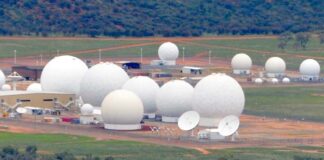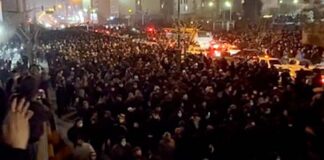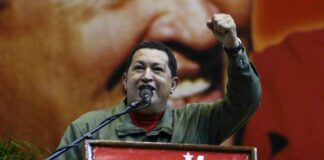The US is preparing to bomb Syria, with the full support of the Australian government and backing from France and other countries. But Western intervention can only make the situation in Syria worse and result in more civilian deaths.
US President Barack Obama moved quickly to blame the horrific chemical weapons attack that killed hundreds of civilians squarely on Bashar Al-Assad’s regime. It is acting with unseemly haste to build the case for military action—threatening to launch strikes even before the UN weapons’ inspectors have completed their report.
Just as John Howard did in supporting the invasion of Iraq, Kevin Rudd has thrown his support behind military action, declaring that “silence or inaction” would “implicitly legitimise the actions by this regime”. Rudd signalled that Australia would use its role on the UN Security Council to press for action.
Western intervention in Syria would make the situation worse and result in even more civilian deaths. The Assad regime’s brutal crackdown on the revolutionary movement that began in 2011 has already cost 100,000 lives.
The wars in Iraq and Afghanistan produced only misery and trauma. Over a million Iraqis were killed and the US ignited vicious sectarian tensions that are still raging to turn Iraqis against each other and maintain its control.
As a result, even the British parliament isn’t supporting military action against Syria. Its vote against bombing Syria is a blow against the war-mongering of British Tory PM David Cameron, who had already called for intervention.
No humanitarian war
The West has no humanitarian motives in attacking Syria. The US now cries crocodile tears about the use of chemical weapons. Yet it has crossed this “red line” itself many times. It carpet bombed Vietnam with Agent Orange, supplied Saddam Hussein with gas to attack the Kurds in 1988 and used white phosphorus in Fallujah in Iraq.
The US hopes to further its own interests by imposing a settlement in Syria where a more pliant ruler is installed or the country is divided. It is engaged in a power play with the other world powers including Russia, which has supplied Assad with heavy weapons, as well as Iran and the Lebanese military resistance organisation, Hezbollah, which also supports the Syrian regime.
But the US is extremely uncertain that the rebels will reliably serve their interests. It only agreed to send light arms to carefully selected rebel groups at the end of July this year, two years after the Free Syrian Army declared its formation.
It wants to hijack the revolutionary movement. This would see a repeat of Libya, where the West backed former regime loyalists inside the opposition to take power and demanded they recognise all existing commercial contracts with Western multinationals as the price for intervention. As a result little has changed for the people of Libya.
Revolutionary movement
The West is no friend of the people in Syria who have fought for democracy and economic equality since 2011. It has supported dictatorships all across the Middle East, from Hosni Mubarak in Egypt to the Saudi monarchy. And they have ruthlessly imposed neo-liberal economic policies that have enriched a tiny minority in Syria.
The Syrian revolution began with peaceful mass demonstrations in the city of Deraa in April 2011. School children who graffitied walls with “the people demand the fall of the regime”, the slogan of the Arab Spring movements in Egypt and Tunisia, were arrested and tortured by security forces.
More than 60 protesters were shot in the first fortnight.
As the struggle against Assad became a military conflict, hardline Islamist groups have grown in influence, funded from pro-US states like Saudi Arabia and Qatar.
But much of the Syrian revolution remains determined to maintain its independence and fight for a democratically controlled society. In areas abandoned by the regime, many towns are run by popular committees that attempt to maintain services and food supplies.
Ruthless regime
Assad runs a brutal and ruthless regime. Even before 2011, there were hundreds of political prisoners and opposition activists were regularly tortured.
Widespread privatisations and pro-market policies have seen inequality soar, reaching a level greater even than Egypt by the mid-2000s. Unemployment before the revolution began stood at 25 to 30 per cent.
Government fighter jets have indiscriminately targeted civilians, bombing bread queues and hospitals in areas under opposition control.
The Syrian regime has postured as part of an “anti-imperialist” alliance with Iran and Hezbollah and is seen as a supporter of the Palestinians.
But it has never consistently opposed imperialism. Syria invaded Lebanon in 1976 to help crush the leftist and Palestinian guerrilla groups that looked like taking power. It also joined the 1991 US war against Iraq and carried out torture of prisoners as part of the US’s rendition program under the “war on terror”.
It is a regime that puts its own interests first and has been happy to strike deals with imperialism when they are on offer.
There is still a legitimate popular revolution taking place in Syria that deserves our support. It faces deep dangers from both the Assad regime and Western intervention.
But the success of the popular revolutions of the Arab Spring that began in 2011, in Egypt, Tunisia and Syria hold the only real hope for liberation and genuine democracy across the region. Western bombing can only set back their struggle.
The US threat to bomb Syria comes at the same time as massive joint US-Australia military exercises in Darwin. Kevin Rudd is, as ever, shamefully playing the role of loyal supporter of US imperialism.
Syrian asylum seekers arriving by boat are being locked up in detention centres and threatened with being removed to PNG or Nauru.
We must unequivocally oppose any attack on Syria, and any cooperation by Australia with such an attack.
Don’t attack Syria; end the US-Australia alliance; close the US bases; free the Syrian asylum seekers





